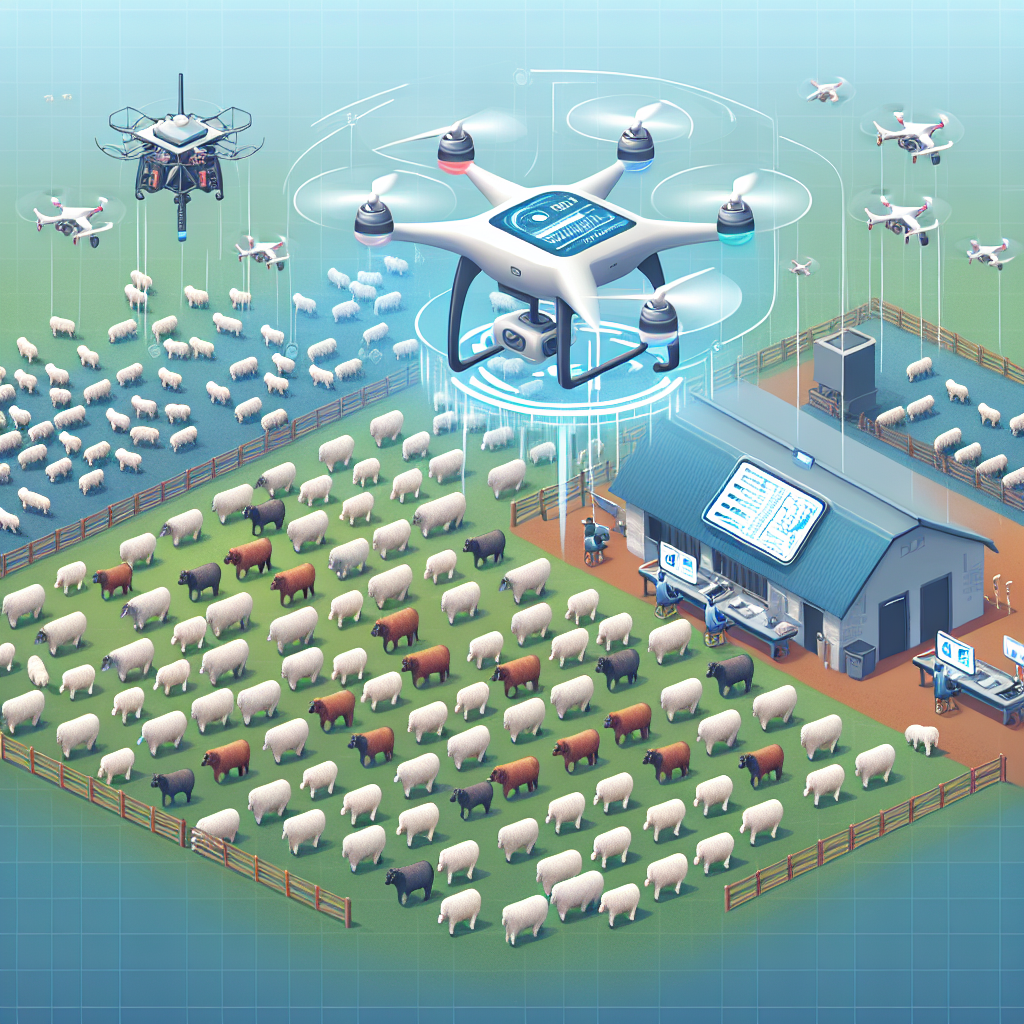As the global population continues to grow, the demand for livestock products such as meat, milk, and eggs is also increasing. This puts pressure on farmers to efficiently manage their livestock to meet this demand. One way farmers are turning to technology to help them is through the use of Artificial Intelligence (AI) for livestock health monitoring.
AI has the potential to revolutionize the way farmers monitor the health and well-being of their livestock. By using AI-powered systems, farmers can collect and analyze data from various sources such as sensors, cameras, and wearable devices to detect any signs of illness or distress in their animals. This allows farmers to take proactive measures to prevent disease outbreaks and improve the overall health and productivity of their livestock.
One of the key benefits of using AI for livestock health monitoring is the ability to detect health issues early on. By analyzing data in real-time, AI systems can identify subtle changes in an animal’s behavior or vital signs that may indicate a potential health problem. This early detection can help farmers intervene quickly and prevent the spread of disease within their herd.
AI can also help farmers make more informed decisions about the management of their livestock. By analyzing data on factors such as feed intake, activity levels, and environmental conditions, AI systems can provide insights into the health and well-being of individual animals or the entire herd. This information can help farmers optimize their feeding practices, improve animal welfare, and ultimately increase the productivity of their livestock.
In addition to monitoring the health of their livestock, AI can also help farmers improve the efficiency of their operations. By automating the collection and analysis of data, AI systems can reduce the time and labor required for monitoring the health of livestock. This allows farmers to focus on other aspects of their business, such as breeding, marketing, and sales.
Furthermore, AI can help farmers make more accurate predictions about the future health and productivity of their livestock. By analyzing historical data and trends, AI systems can forecast potential health issues or changes in behavior that may occur in the future. This predictive capability can help farmers take proactive measures to prevent problems before they occur, saving time and money in the long run.
Overall, the use of AI for livestock health monitoring has the potential to revolutionize the way farmers manage their livestock. By providing real-time insights into the health and well-being of their animals, AI systems can help farmers improve productivity, reduce disease outbreaks, and enhance animal welfare. As technology continues to advance, we can expect to see even more innovative applications of AI in the agriculture industry.
FAQs:
Q: How does AI monitor the health of livestock?
A: AI systems use data from various sources such as sensors, cameras, and wearable devices to monitor the health of livestock. By analyzing this data in real-time, AI systems can detect subtle changes in an animal’s behavior or vital signs that may indicate a potential health problem.
Q: What are the benefits of using AI for livestock health monitoring?
A: Some of the key benefits of using AI for livestock health monitoring include early detection of health issues, improved decision-making, increased efficiency, and predictive capabilities. AI can help farmers prevent disease outbreaks, optimize feeding practices, and enhance the overall health and productivity of their livestock.
Q: How can farmers implement AI for livestock health monitoring on their farms?
A: Farmers can implement AI for livestock health monitoring by investing in AI-powered systems that are specifically designed for monitoring the health of livestock. These systems may include sensors, cameras, and wearable devices that collect data on various aspects of animal health and behavior. Farmers can then use this data to make informed decisions about the management of their livestock.
Q: What are some of the challenges of using AI for livestock health monitoring?
A: Some of the challenges of using AI for livestock health monitoring include the high cost of implementing AI systems, the need for specialized training to use and interpret the data, and concerns about data privacy and security. Additionally, AI systems may not always be able to accurately predict the health of livestock, leading to false alarms or missed opportunities for intervention.

